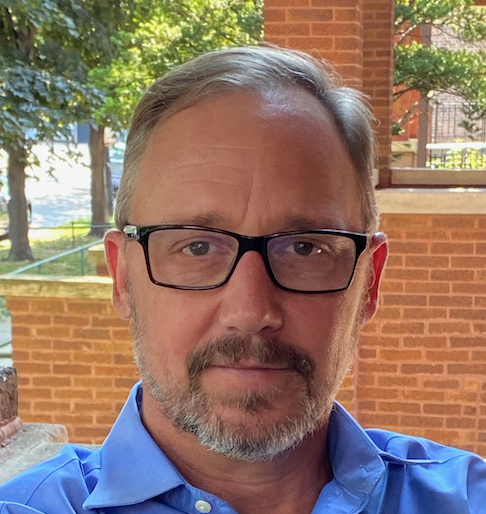What Are We Going to Do About It?
December 10, 2024
Does executive communication have a role to play in meeting this moment? I sure hope so.
I once found myself dancing in a tavern in Bayfield, Wisconsin with a local woman whose hands were so rough that I couldn’t help asking her what she did for a living. She shouted over the band, “I’m in healthcare!” Later in the evening another local told me that the woman was an embalmer, at a funeral home. That’s not healthcare!
Speaking of which, UnitedHeathcare and all health insurance companies getting a torrent of online acid in their eyes, in the wake of the assassination of UHC CEO Brian Thompson last week—the alleged killer’s motive apparently being inspired by antipathy to corporate “parasites,” the shell casings reading “Delay. “Deny.” “Depose.”
The CEO of the parent company, UnitedHealth Group, responded by defending company’s social contribution, the Daily Mail reports. The insurer is on a “journey to help everyone who needs it within the health environment,” Andrew Witty told employees in an internal video, adding that the firm’s “mission… is truly to make sure that we help the system improve by helping the experiences of individuals get better and better.” Witty said that far from denying care to people who need it, UnitedHeathcare plays “a critical role” in making sure that care is “safe, appropriate and is delivered when people need it. We guard against the pressures that exist for unsafe care or for unnecessary care to be delivered in a way which makes the whole system too complex and ultimately unsustainable … And what we know to be true is that the health system needs a company like UnitedHealth Group.”
A different take on the matter comes from the writer Francine Prose, who wrote in The Guardian that she condemns the Thompson killing, which she calls “a criminal response to a criminal situation,” but believes:
The only consolation—the only good that could come of it—would be if his death led to some serious soul-searching, to a concerted attempt to understand why an apparently affable CEO inspired such violence and hatred.
Deny. Delay. Everyone knows what those words signify in reference to medical insurance. Doctors and patients agree that our healthcare system is seriously broken. It hardly needs to be said that medicine, in the United States, reflects and further deepens our profound economic divide. Not long ago, my husband’s longtime doctor left his practice to join a medical concierge service that charges $60,000 per person per year. Soon after, I found myself in the waiting room of an upstate New York urgent care center, watching patients ask the receptionist if they could pay the $35 co-pay in $5 monthly installments.
Before doing any soul-searching, several insurance companies pulled down the bio pages of their execs. And security firms’ phones started ringing off the proverbial hook. A veteran exec comms pro told me the day of the shooting, “I imagine corporate security is going to clamp down even more after this, across companies. This is a wake-up call, but will unfortunately make execs even more isolated from reality.”
That would send a chill down the spine of the executive director of a lesser organization than the Executive Communication Council. Our charter was written and ratified by our founders a half decade ago at an optimistic moment when some of allowed ourselves to hope that “shareholder capitalism” was going to democratize the corporate economy partly by forcing corporate leaders to be more socially responsive. Our related vision was that if executive communication flourished in the way we saw fit, this would be the ultimate result: “The leaders of corporations, nonprofits, universities and other institutions will be more expressive and candid, and the institutions they run will be more humane, socially sensible and effective.”
Well, compelling executive communication is hard to pull off, if leaders are in hiding from the society their companies are operating in—literally, or figuratively. After a recent meeting of exec comms pros, one participant expressed his disappointment that communicators aren’t talking enough how they and their powerful bosses can help prevent or at least soothe a “cultural and political cataclysm” that might come with the Trump administration.
I would love it if executive communication played such a role in our troubled society over the next few years, and some of us are doing some soul-searching of our own, about how to make that happen. Companies and their CEOs do share one powerful motive with most of the rest of us: an interest in social stability. To the extent that corporate leaders can be prevailed upon to commit deeds and issue words that meet stakeholders’ needs, executive communication professionals have important work to do. And it’ll have to be remarkable work, not to be drowned out by the gale-force headwind of so much anti-corporate feeling.
But meanwhile, at this moment we must all cast a hard eye on our own mission, asking ourselves, our leaders and our institutions: “more humane, socially sensible and effective” than what?
Than this, for one thing:
Here is Brian Thompson, two years ago, talking a woodenly from stilts, about his company’s efforts in creating something called “point-of-care assist … where the providers can streamline the preauthorization process to reduce delays, bureaucracy and claim denials.”
Exec comms pros: What do you think your profession can do, from its peculiar corporate perch, to make your leaders better (and thus, your organizations better, too). It’s a heavy question, and I’ll take responses for, or not for attribution, at [email protected].





David, this is spot on. In the 2000s and teens as stakeholder capitalism emerged, I thought companies made progress on having more candid conversations with people. But we have regressed. We hide behind emailed wooden statements to reporters. Earnings calls are pre-recorded (except Q&A) and sound robot-ish. We have been cowed by political attack dogs commenting on business decisions. “Keep your head down,” is the prevailing advice. As a result, companies largely sound the same.
This is a mistake. Over the long term, I believe stakeholders will reward companies they know more deeply, even those that are honest and clear about the fact that delivering value to investors — legally and ethically — is their top priority.
It’s something, Gary, when you’ve been around long enough to see the pendulum swing twice. Early 1990s when I started my career:
With exceptions of Iacocca and Welch, most CEOs didn’t say shit, as my mother would say, if they had a mouth full of it.
Mid-late 1990s: Rock-star CEOs like Chainsaw Al Dunlap, Tyco’s Dennis Koslowski, Michael Eisner. Elaborate speeches, CEOs as statesmen for globalism.
Early 2000s: After dot-com bust and other corporate scandals with human villains, CEOs largely back in hiding. Thank you, Ken Lay.
Early 2010s: Social media, and the slowly building trend toward stakeholder capitalism, as you mention, makes executive communication great again.
2020: Perhaps the so-far height of CEOs as communicators … holding employees together during COVID, publicly emoting after George Floyd … condemning January 6 and President Trump’s efforts to subvert the 2020 election.
2024: University presidents are issuing statements on why they’ll no longer be issuing statements. CEOs follow suit, silently.
The difference between now and the early 1990s or the early 2000s FOR US is that exec comms pros support multiple leaders in their organization, and do a lot more than help a CEO speak boldly on large social issues. So there is plenty of work to do—especially with internal communication.
But exec comms pros who want to help corporate CEOs find their voice in the public square, will have to find the rare CEOs with the stomach and security to do it … or, like the guy who doesn’t like the weather in Cleveland, wait a few minutes.
David, well, that’s a good book proposal.